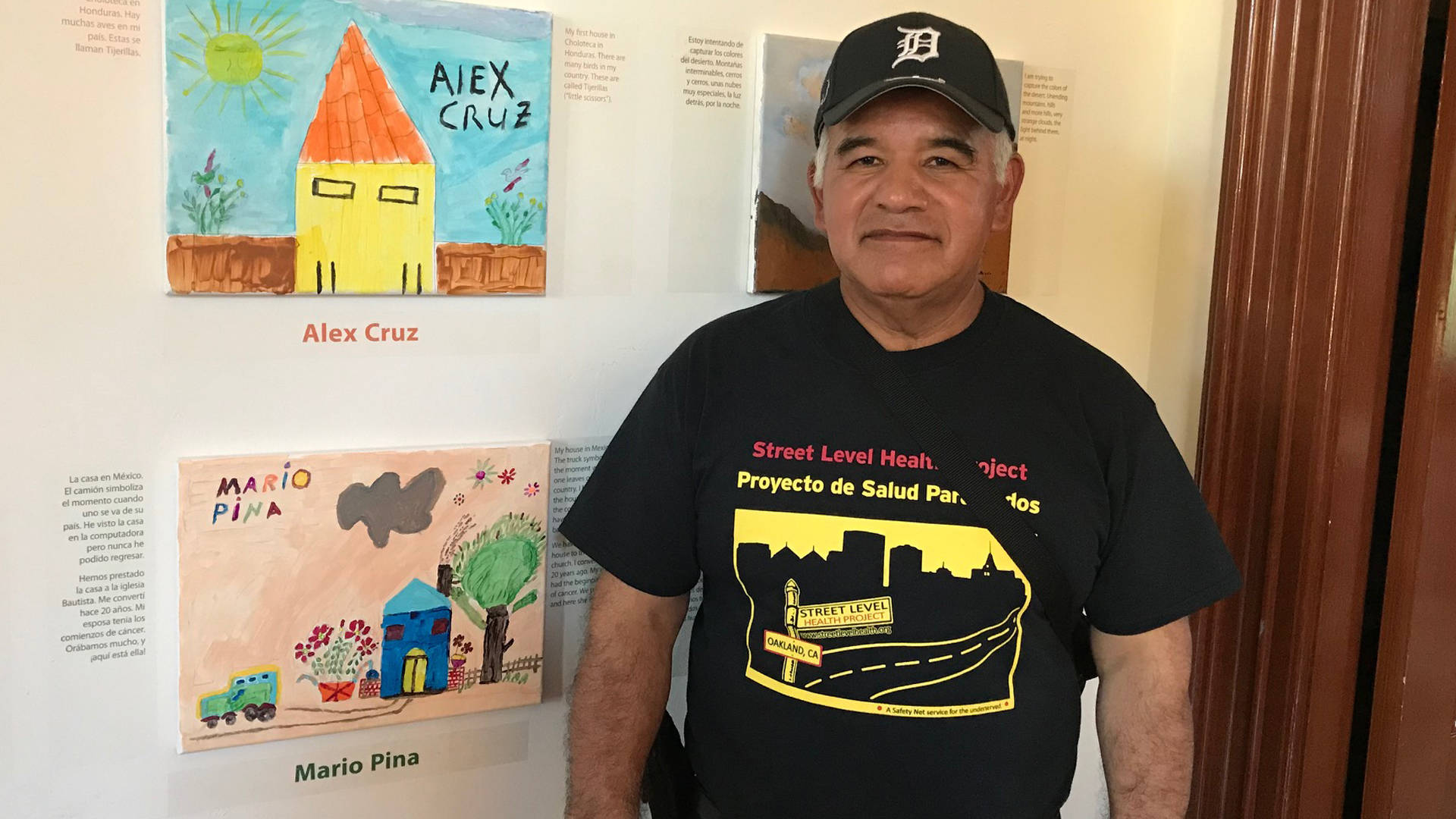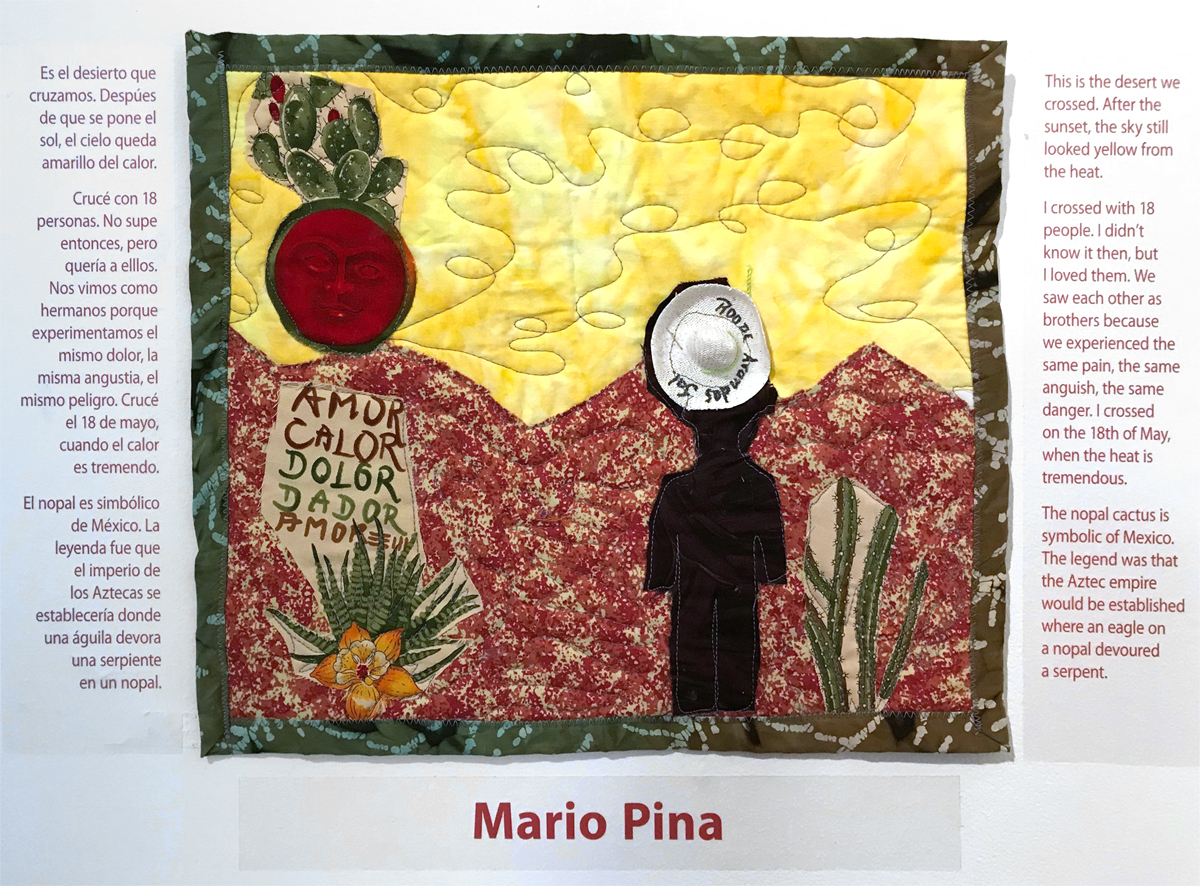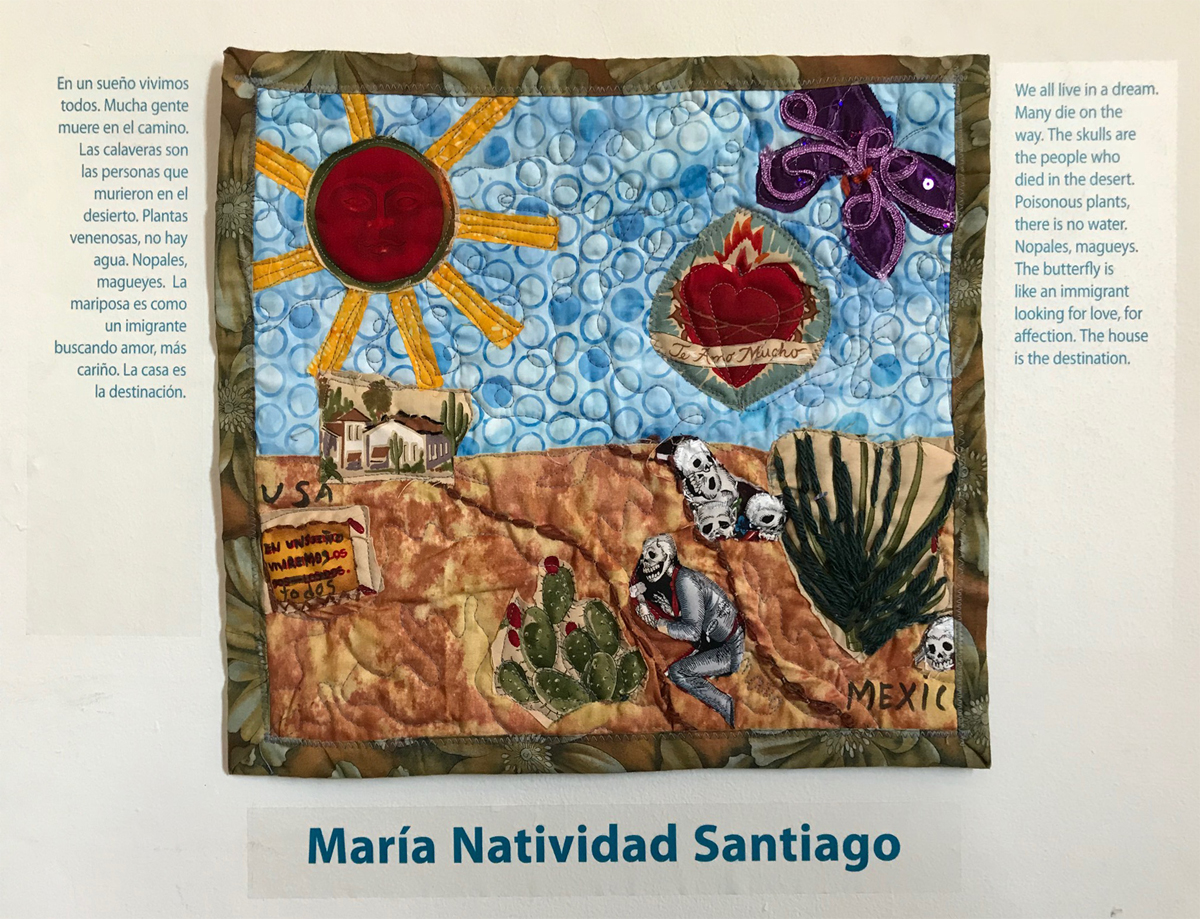On the same day demonstrators took over the steps of the Supreme Court in Washington, D.C. to protest the confirmation of controversial Supreme Court Justice Brett Kavanaugh, across the country in Oakland, a group of day laborers presented their own protest in the form of art.
A total of 13 day laborers are part of Peralta Hacienda Historical Park’s newest indoor and outdoor exhibition, Undocumented Heart: Oakland Day Laborers Tell Their Stories. The artists are all members of the Oakland Workers Collective (a division of Street Level Health Project), a nonprofit organization that works directly with day laborers to ensure they are not exploited by employers, despite their lack of legal immigration documents.
Through the use of textiles, paintings and oral storytelling, the exhibition’s participants share heartfelt accounts of their own lives, detailing when they decided to migrate and what they went through to cross the border. While none of the members of the group consider themselves artists, hidden creativity results in a fascinating display of beauty. Artists Marion Coleman and Ramon Carrillo worked with the group for a year on depictions of personal struggles, resilience, the desire to survive, the consequences of separation, and the need to thrive despite the current anti-immigrant climate. What results is a display that starts a conversation: about the complexity of a broken immigration system and about the historical and political reasons behind individuals’ decisions to immigrate to the United States.
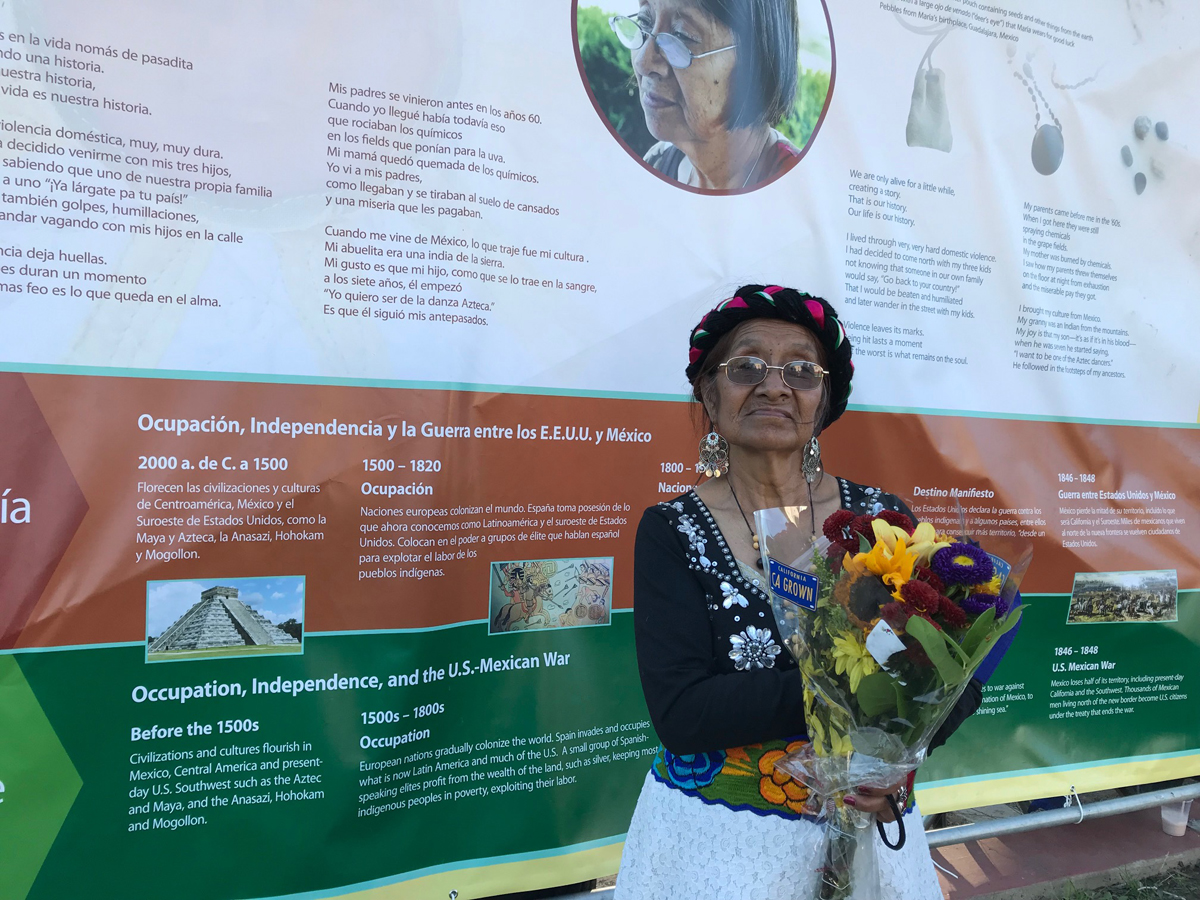
Undocumented Heart is divided into two sections—the outdoor portion consists of enormous vinyl banners, the indoor portion houses the day laborers’ actual artwork. Outside, the banners hang in chronological order starting with the story of the first laborer who moved to the States. Running along the bottom of these narratives is a timeline detailing what was going on in the United States, Mexico and Central America when each laborer migrated.
One of the most poignant voices in the exhibition is that of Mario Pina, a Mexican father who immigrated to the United States in 2004 from the state of Guerrero. Pina worked as a gardener, a job that allowed him to send a significant amount of money home—but when the company he worked for enforced the verification of immigration paperwork, he had to quit. “It was last year when they started checking papers,” Pina says of the moment he knew his livelihood was in jeopardy. He found support in the Oakland Workers Collective. “The [collective] helped us find jobs, and make sure that people we work for pay for our labor.”
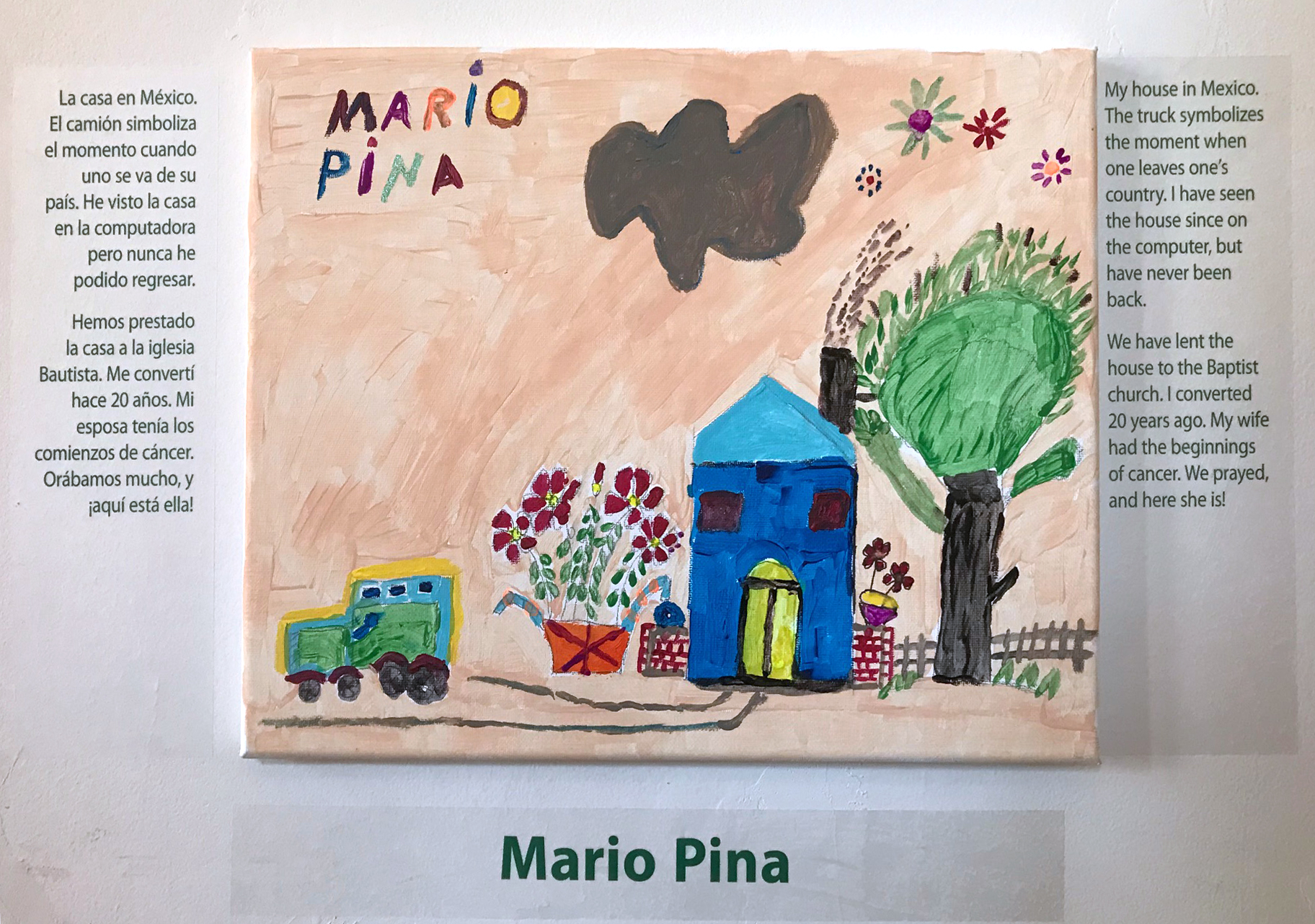
“When I was approached about the project I told them that I’m not an artist, and I didn’t go to school,” Pina says. “But they told me, we want you to tell your story.”
